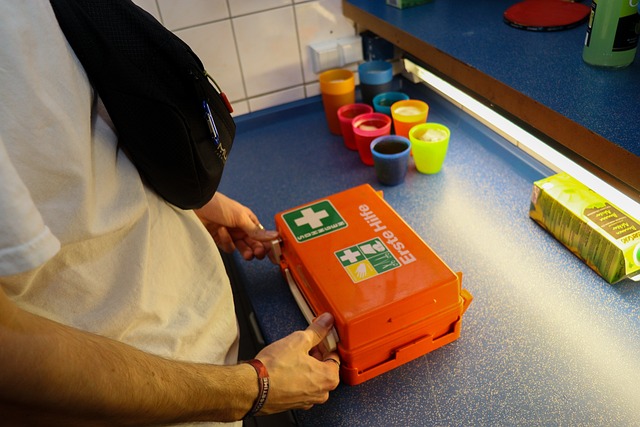
What Should Be in Your Travel First Aid Kit? The Ultimate Guide
When you’re packing for a trip, there are a few items you’ll never want to leave behind. Along with the obvious items like a phone, wallet, and passport, it’s essential to have a small but well-stocked first aid kit. Of course, you can buy a premade kit with all the essentials in miniature size, but if you’re building your own first-aid kit, we’ve compiled a list of the most important items you’ll want to fill it with.
The essentials, supplies specifically for kids, and must-haves for adventure travelers are all included in our list of what to pack in a travel first-aid kit.
The Essentials
- Hand sanitizer
- Hydrocortisone cream, for rashes and bug bites
- Pain and fever reducer, such as Tylenol or Advil
- Bandages
- Antihistaminesfor allergic reactions
- Tweezers
- Small scissors
- Medical tape
- Alcohol wipes
- Gauze pads
- A copy of a recent EKG, if you have heart problems
- A list of your prescriptions, in case you lose them
For Traveling Abroad
- Travel insurance: Compare different types of plans on sites like InsureMyTripor SquareMouth, and check out our full travel insurance guide.
- Antibiotics: Request an antibiotic prescription from your doctor to treat bacterial infections that cause diarrhea.
- Rehydration powder: You’ll need to rehydrate if you spend half of your journey using the restroom.
How Many People Are You Traveling With? What Are Their Ages?
Your ability to estimate how many items to carry will depend on how many travelers there will be.
This usually applies to simple, everyday items like bandages, painkillers, blister treatments, and anti-diarrhea medications. You should have enough of all necessary items on hand because no one can ever be completely ready for every conceivable issue.
It’s crucial to know the passengers’ ages and pack the proper “age-related” medications, especially if there are kids. Children require various medication types and dosages because they are not just miniature adults. Those who are traveling with children ought to pack a special bag just for the little ones.
Here are a few essential items to pack:
- Band-aids
- A pair of gloves
- Compression bandages
- Antibacterial wipes and creams
- Antihistamine creams for itches
- Antihistamine tablets for allergic reations
- A small roll of surgical tape
- Gauze dressings (available in squares that are individually wrapped).
If you’re traveling with women and need to mop up blood on a wound, ask if they have any extra sanitary products, such as tampons or sanitary pads, to help control blood loss if your medical kit is still at the hostel. Sanitary products can be useful if you run out of bandages.
Which brings up yet another crucial piece of advice: wherever they go, women should always bring sanitary supplies.

Where Are You Going?
Location is crucial in the field of travel medicine. You can build a useful medical kit and help prevent illness in general by being aware of the risks associated with the area you are visiting.
How Many Days Are You Traveling?
A seven-week journey is very different from a trip over a long weekend. Similar to the number of passengers, the length of the trip necessitates carrying more of the standard items that will be needed more frequently.
What Activities Will You Be Doing?
Examine your activities and the possible risks involved; this rule applies to all activities, not just athletic or sporting pursuits.
For instance, bringing high-altitude and mountain sickness medication is useless if you’re going on a scuba trip, but bringing lots of blister remedies and ibuprofen is a great idea for a group that will be doing a lot of hiking or walking.
How Far Away from Advanced Medical Care Will You Be?
The longer you’ll need to be ready to provide care, the farther away your location is.
The other question that needs to be asked is, “What level of care is the closest, most cutting-edge?” Medical supplies in a decrepit, understocked clinic in a developing country are likely to be reused. There is a significant risk of infection as a result! Pack additional items, such as antibiotics that might not be available, if you are going to a remote location where pharmacies are few and their stock is limited.
Does Anybody You’re Traveling With Have Prior Medical Problems?
It is crucial to be aware of the medical history of your traveling companions, especially if you plan to pack a medical kit. A pregnant woman will need a few different medications than a traveler with a history of heart disease.
Travelers who regularly take prescription medications should bring those prescriptions along with them. In case of delays or lengthy travel, they should also have a supply that will last them for a few more days.
Read about:

